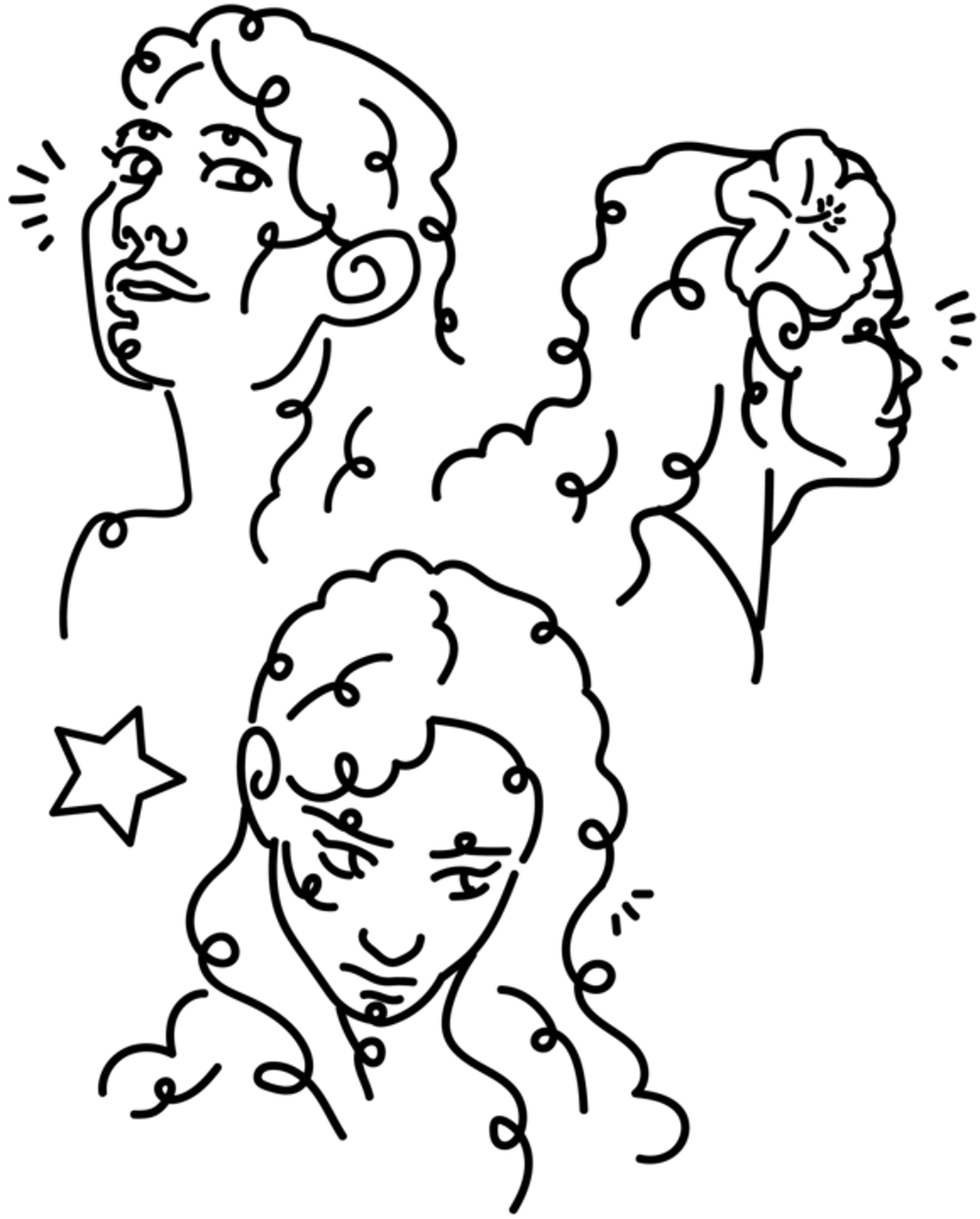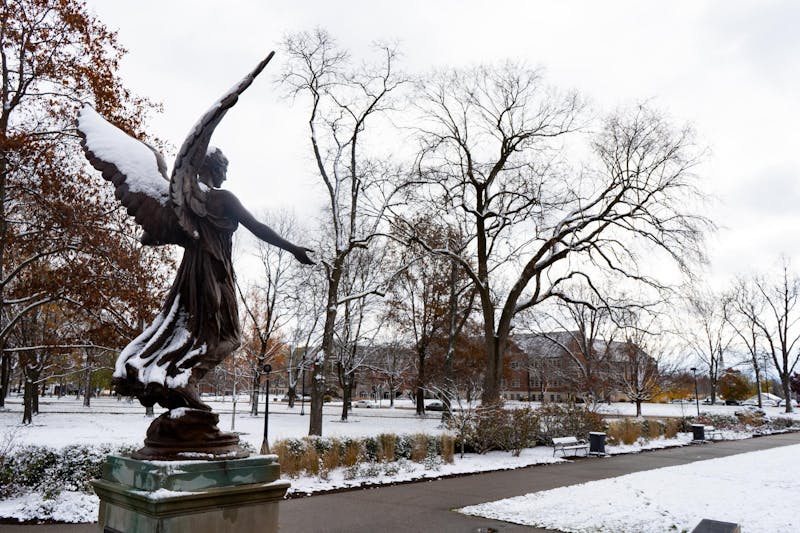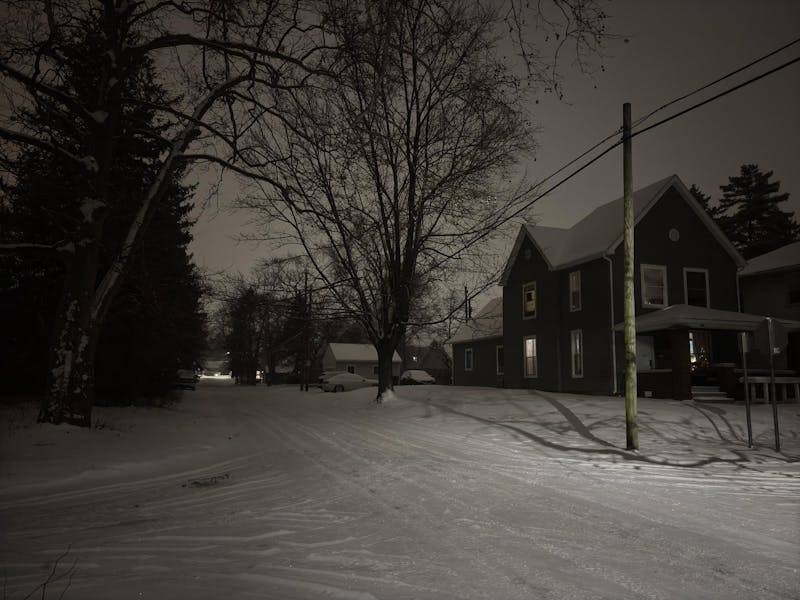Cristal Mariano is a first-year journalism major and writes “Breaking Barriers” for the Daily News. Her views do not necessarily reflect those of the newspaper.
I am Puerto Rican and Dominican. I love embracing my culture whether it is representing my countries with flags hung in my dorm room, speaking with pride during in-class speeches or sporting the numerous pins on my backpack. I am very passionate about representing my homeland. I was originally born in Ponce, Puerto Rico, where much of my dad’s family hails from. A majority of my mom’s side are still residents of the Dominican Republic.
Being raised in the Caribbean, I was taught different recipes, religious ideologies and even cultural beliefs from both countries. Much of my life is a mix of both cultures.
I mainly grew up in Puerto Rico — the place I consider my home — but when I was 6 years old, my parents decided to come to the United States mainland. They wanted a better future for my sisters and I.
Eventually, my dad left the picture which meant I had to step into his shoes. I needed to become the “responsible older sister.” So I decided to go to college.
In honor of Hispanic Heritage Month, I wanted to share how being a first-generation Latina in college has led to a unique journey filled with both challenges and opportunities.
As a trailblazer in my family, I’ve faced the exciting — and often overwhelming — task of navigating the contemporary educational system in America while still finding ways to embrace my cultural identity.
There’s a lot to be said about the experiences, triumphs and struggles faced by first-generation Hispanic people in college. While it can seem so achievable, it’s also a long, tedious commitment.
College is a huge step towards your future career. Even when it comes to job interviews or meetings with school administrators, it can be a challenge when some English words tend to confuse me.
I still criticize myself for not being fluent.
On a day-to-day basis, I often compare myself to a lot of my peers who seem so advanced while I feel like I’m falling behind. If I do badly on an assignment or in class, I feel like I am somehow failing my family.
But that’s just the process of being a first-gen student. We are more deserving than what our regressive thoughts try to convince us of.
Being a first-generation Latina college student is a daunting step in life, especially being the first one to break the family cycle. We play an important role in paving the way for future generations.
According to the Center for First-Generation Student Success, as of the 2015-16 academic year, 56 percent of undergraduate students in the United States were first-generation college students, with 59 percent of these students also being the first siblings in their family to go to college.
That is a significant achievement, and it’s something to be immensely proud of. But it is not easy.
There have been trials and tribulations I never expected to confront. Whether it was navigating the educational system, understanding FAFSA, overcoming language and cultural barriers, or balancing academic and financial pressures, I had more on my plate than I ever expected.
Without family members who understand the bureaucracy of it all, navigating these new things can be challenging.
These hurdles stood in front of me at a daunting height. But there were available resources that lowered the height so I felt “caught up” with my non-first-gen peers. Having academic advisors and supportive professors who gave me the accommodations I needed helped me to feel less alone.
Moving away from home meant I would see my family less. But I knew when I arrived I still wanted to maintain a strong connection with my cultural identity. It’s what provided me with a sense of belonging and empowerment even when away from home.
It has been important for me to celebrate and preserve my cultural heritage by participating in student organizations, attending events and engaging with my new community. And I would encourage anyone else who has become culturally homesick to participate in these activities as well.
Don’t forget your roots. It’s what makes you unique and it’s a part of your identity. Keep up with family. It is important to talk to them about your college experience.
Embrace your cultural identity. Make it a part of your college experience. Ball State has the Latinx Student Union and other events!
Building a supportive community on campus is crucial for your overall well-being and success. Seeking out these organizations and clubs can help you connect with fellow first-gen Hispanics who understand your journey as well as you do.
Your cultural background shouldn’t be viewed as a collegiate-level barrier; it is a strength that enriches the college experience.
Imposter syndrome is something I’ve dealt with many times. It’s like that annoying mosquito buzzing in your ear, constantly whispering doubts and insecurities. Without family coming to clear the path for you, it's easy to feel like you don't belong or that you're not as smart as your peers.
But I've learned I am just as capable and deserving as anyone else. I have learned to recognize those doubts for what they are and confront them head-on.
I try to remind myself of my accomplishments, big and small. And I think everyone should. Believing in your abilities and remembering you've worked hard to get where you are allows you to push down the bad feelings when they come.
We all deserve to be here.
According to Pew Research Center, there were about 470,000 Latinos enrolled at degree-granting postsecondary institutions in 1980, accounting for four percent of all students. That number increased to 1.5 million in 2000, and 3.7 million in 2020, accounting for a fifth of all postsecondary students.
That would not have been possible without people taking the first step to be first-generation students. As current first-generation students, we are breaking down the barriers that stand before us. We pave the way for future generations.
By sharing my own story, I hope first-generation Hispanics can feel seen. Together, making our stories known, we will continue to inspire and create lasting change in higher education.
At the beginning of my college experience, I felt more alone than I had my whole life. But I found the people who wanted to support me. I now embrace my journey, and I continue to seek support while celebrating my own cultural identity.
With determination and resilience, I know I can continue to thrive and succeed in college. I will carry that with me everywhere I go even when this journey comes to a close.
Contact Cristal Mariano with comments at cmarianovargas@bsu.edu.





The Daily News welcomes thoughtful discussion on all of our stories, but please keep comments civil and on-topic. Read our full guidelines here.